Publications
Articles, publications, books, tools and multimedia features from the U.S. Institute of Peace provide the latest news, analysis, research findings, practitioner guides and reports, all related to the conflict zones and issues that are at the center of the Institute’s work to prevent and reduce violent conflict.
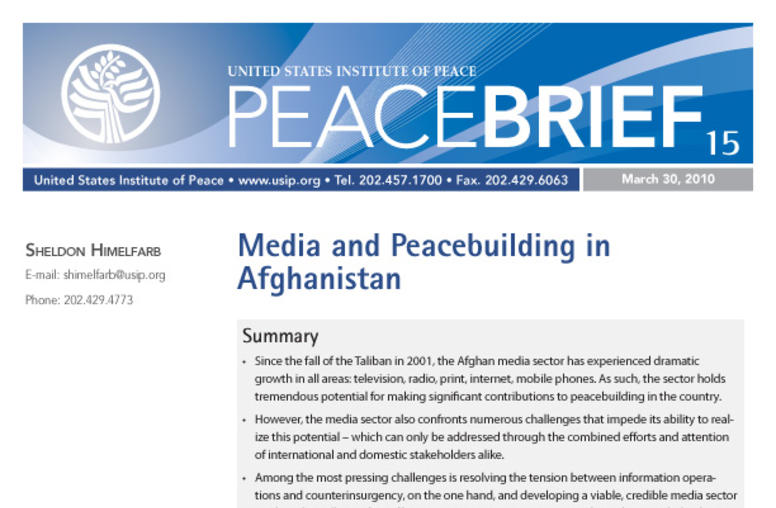
Media and Peacebuilding in Afghanistan
Since the fall of the Taliban in 2001, the Afghan media sector has experienced dramatic growth in all areas: television, radio, print, internet, mobile phones. As such, the sector holds tremendous potential for making significant contributions to peacebuilding in the country.
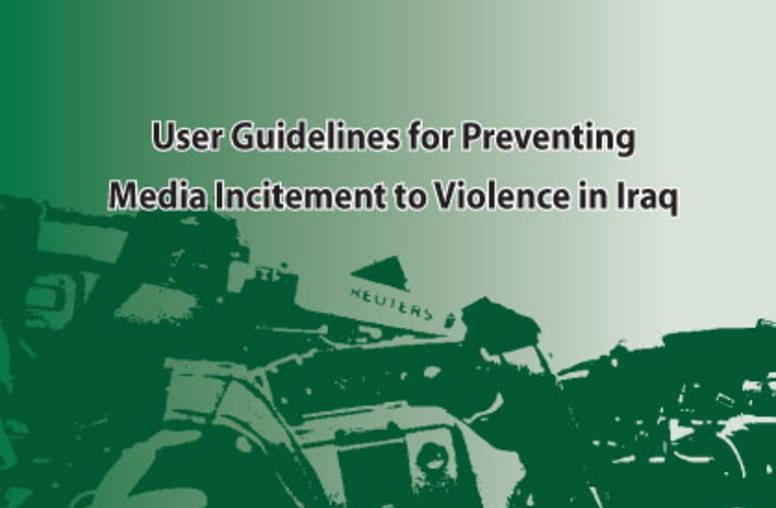
User Guidelines for Preventing Media Incitement to Violence in Iraq - Elections Edition
The guidelines are designed as a self-regulatory tool for media to gain awareness about the dangers of inflammatory language in reporting on elections. This Arabic resource, which includes suggested alternatives to facilitate more conflict-sensitive reporting, has been distributed to Iraqi media outlets and government offices prior to Election Day in Iraq.
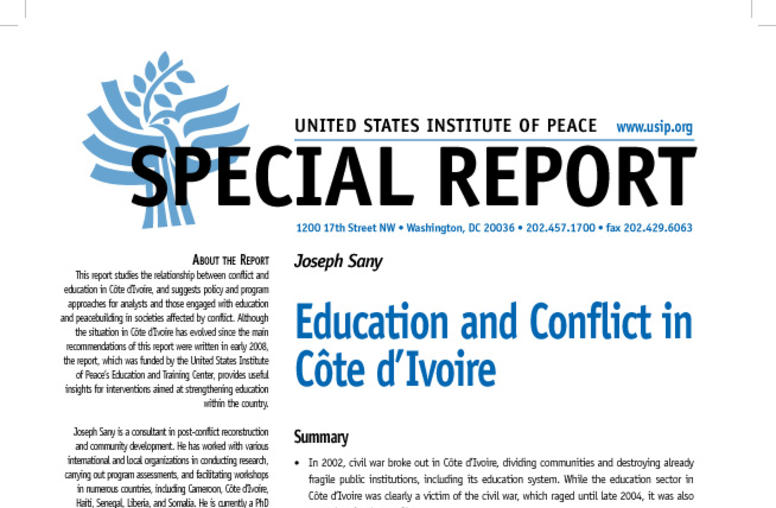
Education and Conflict in Côte d’Ivoire
This Special Report discusses the impacts of civil war in Côte d’Ivoire on the education system and society.
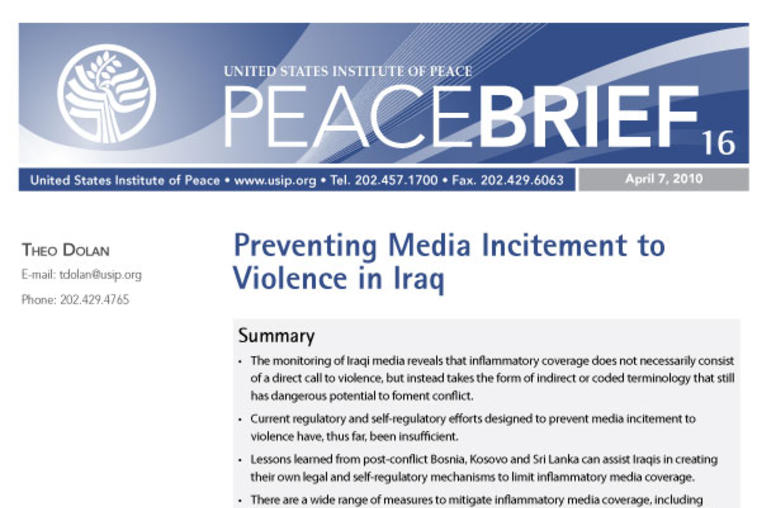
Preventing Media Incitement to Violence in Iraq
Iraqi media stakeholders have identified media incitement to violence as a crucial issue, especially during election periods. As a result, USIP’s Center of Innovation for Media, Conflict and Peacebuilding convened a conference on September 25-26, 2009 to explore the complex issue and to identify specific action points for mitigating inflammatory coverage in Iraq.
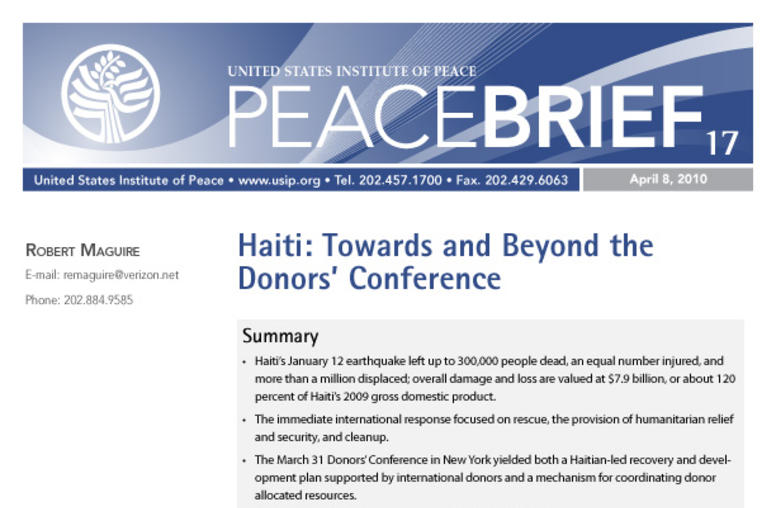
Haiti: Towards and Beyond the Donors’ Conference
Haiti’s January 12 earthquake left up to 300,000 people dead, an equal number injured, and more than a million displaced; overall damage and loss are valued at $7.9 billion, or about 120 percent of Haiti’s 2009 grian relief and security, loss domestic product. The immediate international response focused on rescue, the provision of humanitarian and cleanup.
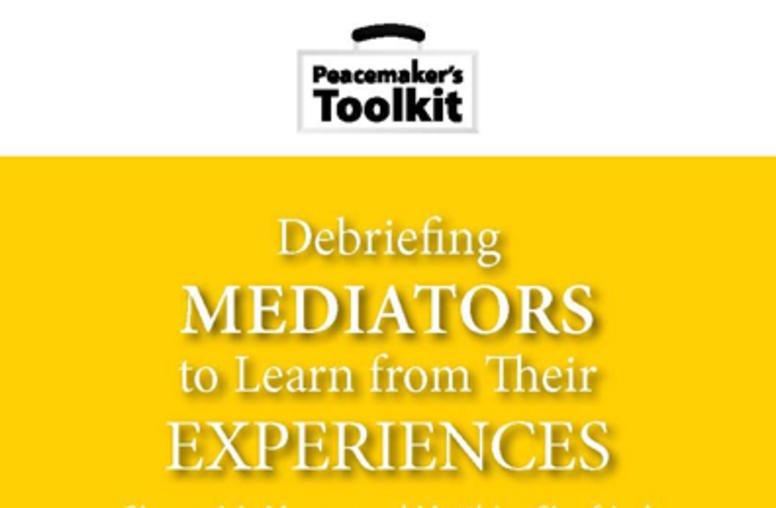
Debriefing Mediators to Learn from Their Experiences
This handbook enhances the practice of mediation by showing how lessons from individual mediators can be identified and made available both to their organizations and to a wider practitioner audience. It also gives guidance to staff debriefing mediators who are or have been directly involved in peace negotiations. This handbook is part of the Peacemaker’s Toolkit series, published by the United States Institute of Peace.
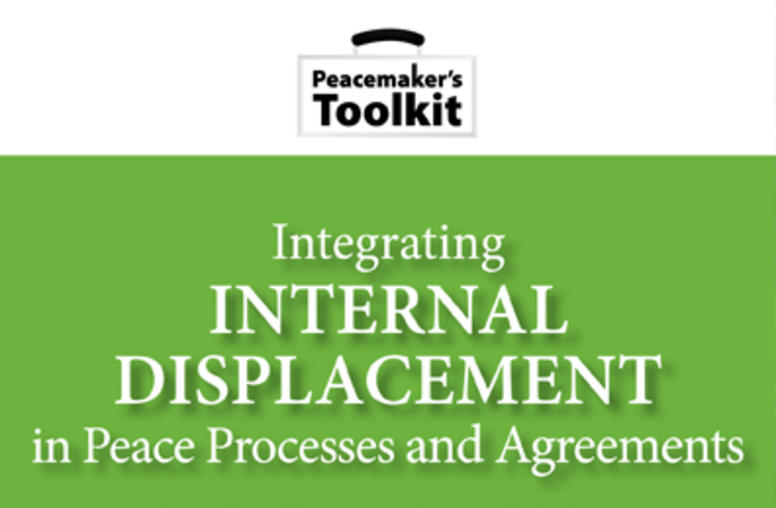
Integrating Internal Displacement in Peace Processes and Agreements
Leading experts on mediation and the plight of internally displaced persons (IDPs) collaborated to produce this handbook, which gives mediators the tools they need to incorporate IDPs' concerns into peace processes and agreements. This handbook is part of the Peacemaker’s Toolkit series, published by the United States Institute of Peace.
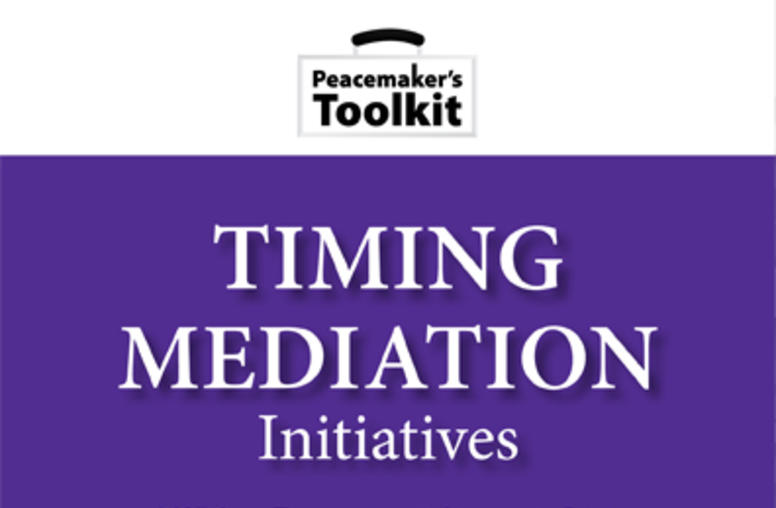
Timing Mediation Initiatives
A mediation initiative cannot be launched at just any time if it is to succeed, and and this toolkit lays out five steps mediators can take to determine when a conflict is ripe for mediation. This handbook is part of the Peacemaker’s Toolkit series, published by the United States Institute of Peace.
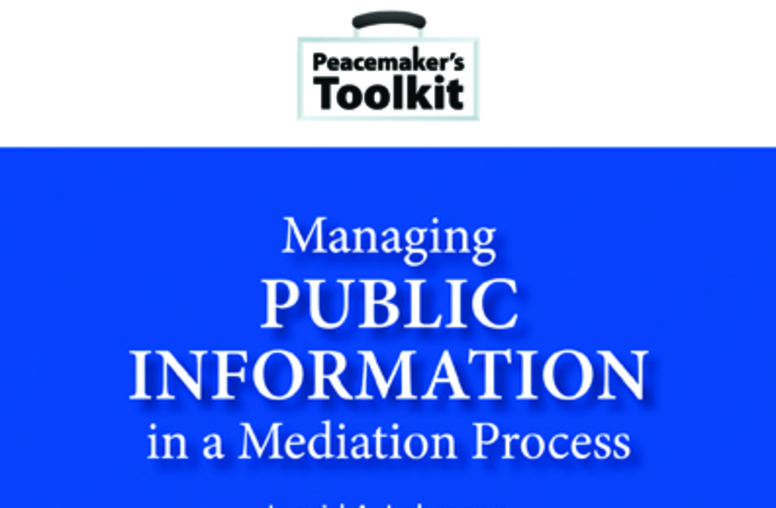
Managing Public Information in a Mediation Process
This handbook helps mediators identify and develop the resources and strategies they need to reach their audiences. It is part of the Peacemaker's Toolkit series, published by the United States Institute of Peace.
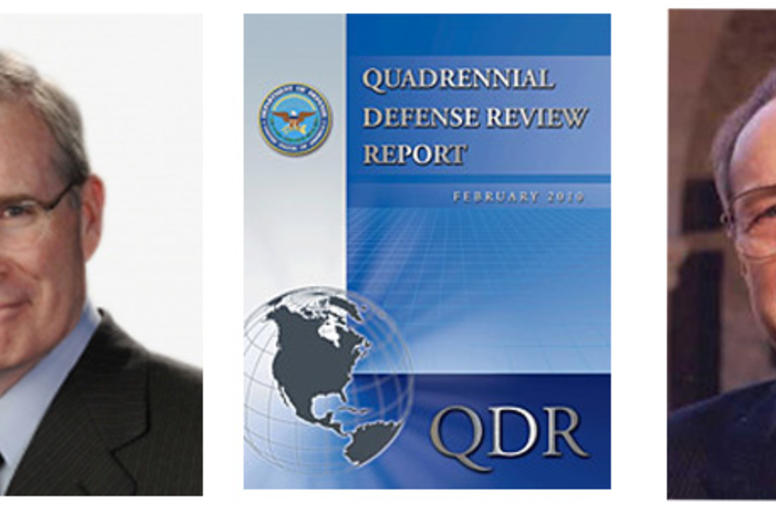
"Quadrennial Defense Review Independent Panel"
On April 15, 2010, William J. Perry and Stephen J. Hadley testified before the House Armed Services Committee on the "Quadrennial Defense Review (QDR) Independent Panel" which is facilitated by the United States Institute of Peace (USIP). The QDR Independent Panel, which includes 12 appointees of Secretary of Defense Robert Gates and eight appointees of Congress, has been asked to submit a written assessment of the QDR by July 15, 2010.